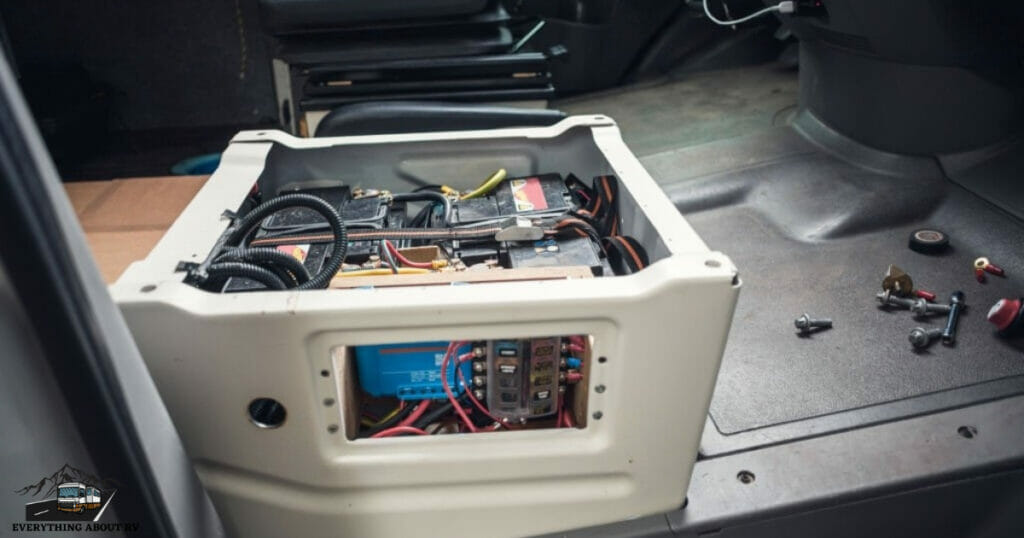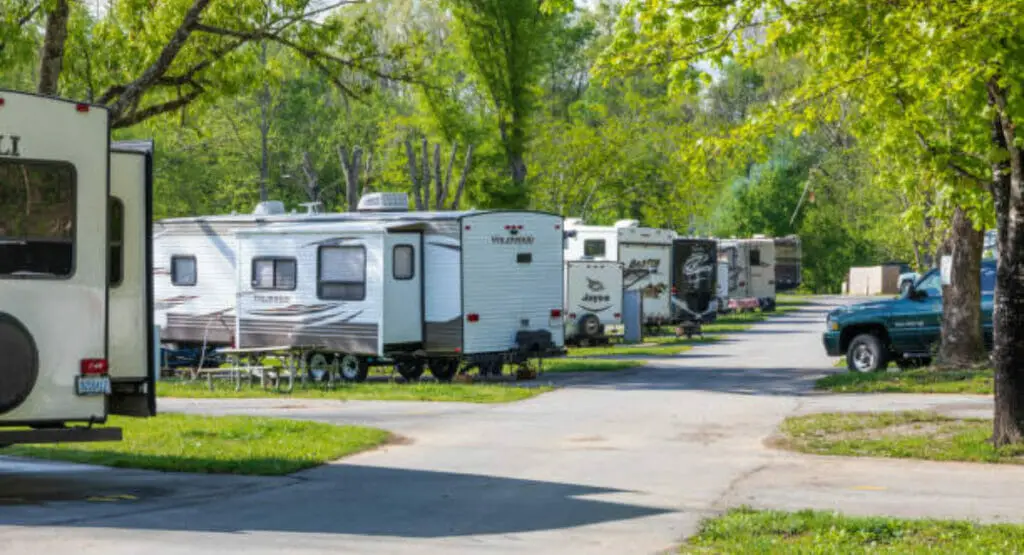If you’re a frequent RV traveler, you understand the value of having a dependable battery to fuel your trips. Nothing is more aggravating than discovering that your RV battery is dead or drained just as you’re about to hit the road. One typical issue that many RV owners face is their RV battery draining while it is plugged in. In this blog post, we’ll look at why your RV battery can be depleting while it’s plugged in, as well as some practical tips for preventing and dealing with this issue.
RV batteries are essential components that power various systems and equipment in an RV, such as lighting, appliances, and air conditioning units. Even when an RV is plugged into a power source, the battery can still drain, causing RV owners inconvenience and irritation. This issue can be caused by several factors, including malfunctioning converters, parasitic loads, and old or broken batteries.
RV batteries are essential for powering an RV’s systems and electronics, allowing travelers to enjoy the conveniences of home while on the road. RV owners may be unable to power essential gadgets such as lights, freezers, and air conditioning units if their batteries fail. Furthermore, having a dependable battery is vital for boondocking or off-grid camping when access to power sources may be limited. Given the importance of RV batteries, RV owners must understand how to prevent and treat battery drainage concerns.
I. Why is your plugged-in RV battery draining?
1. Faulty Converter
A malfunctioning converter is one of the most common causes of an RV battery draining when plugged in. The converter is in charge of converting the AC power from the RV’s electrical hookup to DC electricity in order to charge the battery. If it is not working properly, the battery will not receive a charge and gradually discharge.
2. Parasitic Loads
Parasitic loads are another cause of RV battery drain. These are devices that use electricity even when they are not in use. Refrigerators, clocks, and carbon monoxide detectors are common parasitic loads in RVs. While these gadgets are vital, if left unchecked, they might drain your battery.
3. Age and condition of the battery
Finally, the age and condition of your battery might also contribute to drainage problems. Your battery may not hold a charge as well as a new one if it is old or damaged. Furthermore, excessive temperatures can cause your battery to degrade faster, resulting in drainage concerns.
II. How to Fix Your RV Battery Draining While Plugged In
1. Check the Converter
If you suspect that a faulty converter is causing your RV battery to drain while plugged in, the first step is to inspect it. Look for any signs of damage, such as burnt wires or loose connections. You may also want to test the converter’s voltage output with a multimeter to ensure it’s working correctly.
2. Identify and Eliminate Parasitic Loads
To address parasitic loads, you need to identify which devices are drawing power when they’re not in use. One way to do this is to turn off all devices and disconnect them one by one until you find the culprit. Once you’ve identified the parasitic loads, you can either disconnect them or use a power strip with an on/off switch to control their power consumption.
3. Inspect and Replace the Battery
If your battery is old or damaged, it may need to be replaced. Before doing so, inspect the battery terminals for any signs of corrosion or damage. If the battery is still in good condition, you may be able to recharge it using a battery charger. If it’s beyond repair, you’ll need to replace it with a new one.
III. Keeping RV Batteries From Draining
1. Disconnecting Equipment
Disconnecting equipment while not in use is one of the simplest techniques to prevent RV battery loss. When you’re not in the RV, you should unplug appliances and turn off lights. While the RV is not in use for an extended period, it is also a good idea to unplug the batteries.
2. Panels for solar energy
Another option for preventing RV battery loss is to recharge the battery with solar panels. Solar panels transform sunshine into power, which may then be used to charge your battery. This is a green solution that can also help you save money on your electricity bills.
3. Enhancing Battery Capacity
If you frequently encounter a power drain, you might think about updating your battery capacity. Installing a larger battery or adding a second battery can accomplish this. This will give you additional power and allow you to go longer between charges.
Conclusion:
Finally, a depleted RV battery can rapidly transform a fun journey into a frustrating one. However, RV owners can avoid this issue and enjoy uninterrupted power while on the road by understanding the common causes of battery drainage and taking the necessary steps to address them. There are several methods for reducing battery drainage, ranging from evaluating and replacing faulty converters to identifying and removing parasitic loads. RV owners can also extend the life of their batteries and maximize their power usage by taking precautionary actions such as removing equipment and boosting battery capacity. RV owners can keep their batteries charged and ready for their next excursion by following the guidelines and recommendations in this article.




hi very nice and usefull info….. please keep it up…….thanks